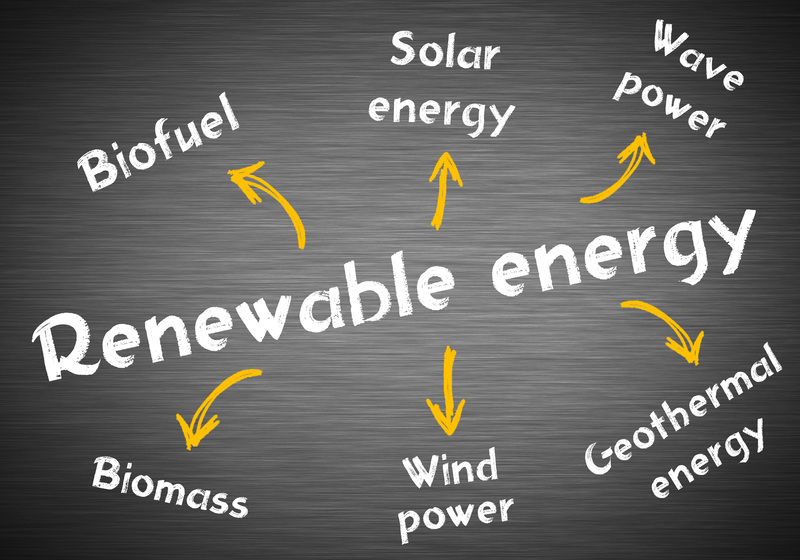Cost-Saving Options for Bulky Waste Pickup and Disposal
Getting rid of large, unwanted household items like furniture, appliances, or yard debris can be challenging. With expensive landfill fees and limited curbside collection programs, it's important to explore cost-effective solutions for managing bulky waste. This comprehensive guide discusses budget-friendly options for bulky waste pickup and disposal, helping you save money while protecting the environment.

Understanding Bulky Waste: What Is It?
Bulky waste, also known as large-item waste, refers to items too big or heavy for standard garbage bins. Examples include:
- Old furniture: sofas, mattresses, chairs, tables
- Household appliances: refrigerators, washing machines, ovens
- Yard waste: tree branches, large lawn debris
- Electronics: televisions, computers, office equipment
- Construction debris: drywall, toilets, sinks
Disposing of these items responsibly and economically requires knowledge of multiple solutions and local regulations.
Why Can Bulky Item Disposal Be Expensive?
Before seeking out cost-saving alternatives for bulky item disposal, it's helpful to understand why it's often costly:
- Landfill fees: Dumping large items at landfills can incur substantial costs per item or by weight/volume.
- Transportation: Renting trucks or hiring services to move heavy wastes adds expenses.
- Labor: Some items require special handling for safety or recycling laws.
- Regulations: Electronics, appliances, and hazardous wastes may need special processing per local laws.
Fortunately, you have many ways to reduce or even eliminate these costs. Let's review the best cost-saving options for bulky waste pickup and disposal.
1. Utilize Free Municipal Bulk Waste Pickup Services
Check Local City or County Programs
Many municipalities offer free or low-cost bulky waste pickup services once or twice a year. Residents can schedule pickups or set out items during designated days, often as part of spring or fall cleaning events.
- Contact Public Works: Check your city, county, or township's website for bulk waste collection schedules.
- Know the Rules: There are often restrictions on item types, weight, and volume. Electronics, hazardous materials, or large construction debris may be excluded.
- Schedule Early: Some cities require advanced signup due to high demand.
This is the most economical and environmentally friendly option if available in your area.
2. Drop Off at Public Bulk Waste Facilities
Find Community Drop-Off Locations
Many cities host transfer stations or public works yards where residents can drop off bulky waste items at little or no cost. Some benefits include:
- Lower or no dumping fees compared to commercial landfill rates
- Ability to dispose of a variety of large items together
- Environmentally preferred sorting for recycling and diversion
Before visiting, check hours, residency requirements, and accepted items. Bring proof of residency if required.
3. Donation and Reuse: Give Items a Second Life
Donate Gently-Used Bulky Items
Before paying for disposal, ask yourself: Can my unwanted furniture or appliances still be of use?
- Local charities and nonprofits often accept furniture, mattresses, and working appliances.
- Some organizations, like Habitat for Humanity ReStores, will pick up items for free if they are in good condition.
- Check with thrift stores, shelters, and churches for donation guidelines.
Tip: Donation keeps items out of landfills, supports local causes, and saves you money on disposal fees. Plus, you may be eligible for a tax deduction!
Offer Items Online or Through Community Groups
- Post on websites like Craigslist, Facebook Marketplace, Freecycle, or Nextdoor.
- Mark large items as "free pickup" to minimize your effort and costs.
- Take clear photos and provide details for a quick response.
Often, someone will haul off your bulky item at zero expense to you.
4. Bulk Waste Recycling Programs
Identify Specialty Recyclers
Many recyclable items such as appliances, electronics, and scrap metal are not garbage; they have value and can be disposed of for free or for a small rebate:
- Appliance retailers may take back your old refrigerator or washer when delivering new ones.
- Electronic waste (e-waste) recyclers accept TVs, monitors, and computers, sometimes at no charge.
- Scrap yards may pay you for large metal objects.
Search online for "bulky item recycling near me" to find locations that take your specific items. Responsible recycling helps the environment and can be easier on your wallet.
5. Pool Resources through Neighborhood or HOA Collections
If your area lacks public bulk pickup, work with neighbors or your Homeowners Association (HOA) to arrange a shared collection:
- Hire a dumpster or junk removal service and split the cost among several households.
- Coordinate a neighborhood "clean-out" weekend to qualify for volume discounts or special rates.
- Ask if your waste hauler offers group or community pickup savings for large loads.
This method drastically lowers your individual expenses for bulky waste disposal.
6. Compare Professional Junk Removal Services
Shop Around for Best Value
If you need help moving bulky items and can't use free services, consider hiring a professional junk removal company. There are ways to keep costs low:
- Get Multiple Quotes: Compare prices and see if they offer flat rates versus per-item or hourly billing.
- Ask About Volume Discounts: The more you remove at once, the lower the per-item cost is likely to be.
- Be Prepared: Have your items accessible and ready to go to reduce labor charges.
Selecting a reputable, eco-friendly company (such as one that donates or recycles items) often provides better value for your money.
7. Rent a Dumpster or Junk Bag for DIY Disposal
When Is Renting a Dumpster Cheaper?
For major clean-outs or renovations, rolling dumpsters or bag-style containers may be the most cost-effective. Tips to save money:
- Choose the correct size (too big and you overpay, too small and you need multiple hauls).
- Fill the container efficiently and share with neighbors if possible.
- Compare dumpster rental prices and included disposal fees.
- Check permit requirements in your locality.
Junk removal bags ("dumpster-in-a-bag") from hardware stores can be a flexible, lower-cost option for smaller amounts of bulky waste.
8. Repurpose and Upcycle
Before hauling anything to the landfill, consider ways to upcycle or repurpose bulky items:
- Turn old dressers into storage benches or garden planters.
- Convert pallets into outdoor furniture.
- Transform broken appliances into storage or art projects.
Online tutorials and design inspiration can turn waste into savings and sustainability.
Key Tips for Affordable Bulky Item Removal
- Plan ahead and know your disposal deadlines for municipal programs.
- Sort items for donation, recycling, and true landfill disposal to minimize costs.
- Advertise usable items for free pickup to reduce hauling expenses.
- Always check local rules - some items like electronics, mattresses, or tires require special handling.
- Pool efforts to share resources or rental costs.
- Don't overload containers; fines for improper disposal can erase your savings.
Cost Comparison Table: Bulky Waste Disposal Methods
| Method | Typical Cost | Pros | Cons |
|---|---|---|---|
| Municipal Pickup | Free or low fee | Easy, convenient, low cost | Limited to specific items and dates |
| Drop-Off Facility | Usually free or small charge | Flexible timing, allows large loads | Transport needed, location restrictions |
| Donation | Free (possible tax deduction) | Supports charity, eco-friendly | Items must be in good condition |
| Online Gifting/Sale | Free | Quick removal, potential cash back | No-shows, possible safety concerns |
| Professional Removal | $$ (varies by load) | No heavy lifting, full service | Most expensive, less control |
| Dumpster/Bag Rental | $ - $$ | Handles large quantities, self-paced | Space needed, possible permit |

Frequently Asked Questions About Bulky Waste Disposal
What is the cheapest way to get rid of large items?
Utilizing free municipal pickups, donating usable items, or posting for free removal online are the most affordable approaches for large, bulky waste.
Can I combine my bulky waste with neighbors to save money?
Yes. Shared dumpster rentals, coordinated junk removal days, or community collections cut down individual costs and make disposal easier.
What if my city doesn't offer bulky item collection?
- Check for nearby drop-off facilities or transfer stations.
- Contact your waste hauler about special pickup services.
- Coordinate with private services for neighborhood discounts.
What should I do with items that are neither recyclable nor reusable?
Dispose of them at a licensed landfill or hire a professional bulk waste service, ensuring you meet local disposal regulations to avoid fines.
Summary: Save Money, Save the Planet
Bulky waste pickup and disposal doesn't have to break the bank. By researching your local options, planning ahead, and seeking reuse or recycling opportunities, you can reduce your disposal expenses while helping the environment. Always prioritize donation, municipal services, and recycling before turning to paid landfill or junk removal services. When you do need professional help, compare prices and consider pooling resources for even greater savings.
With these cost-saving options for bulky item removal, you'll keep your home clutter-free and your wallet happy--while making a positive impact on your community and the earth.
